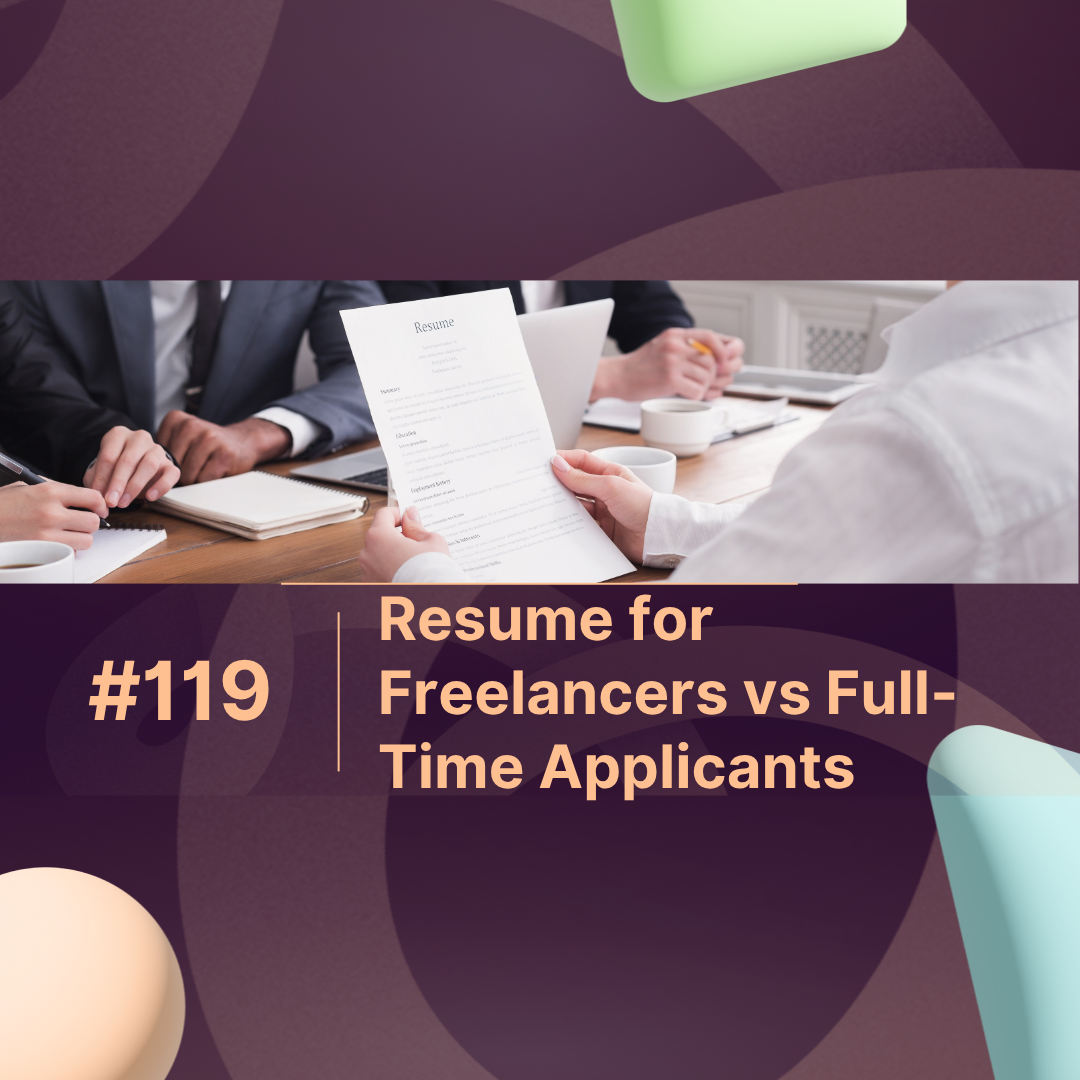Are you struggling to make your resume shine whether you’re a freelancer or applying for a full-time role? Understanding how resumes differ for freelancers vs full-time applicants is crucial to capturing recruiters’ attention in 2025. The right format, tone, and structure can significantly improve your chances of landing interviews and projects.
This blog provides an in-depth overview of the differences, tips to optimize your resume, and examples of how tools like MaxProfile can help you craft the perfect resume for any career path.
Overview
Freelancers and full-time applicants both need resumes that demonstrate skills, experience, and results. However, the way you present your work, achievements, and career trajectory differs depending on your professional model.
Freelancers typically emphasize project outcomes, client results, and versatility across multiple industries. Full-time applicants, on the other hand, highlight stability, growth within organizations, and alignment with company culture.
By understanding these differences, you can tailor your resume to fit your career goals while optimizing it for applicant tracking systems (ATS) and recruiter preferences.
Key Differences Between Freelancers vs Full-Time Applicants
| Aspect | Freelancers | Full-Time Applicants |
|---|---|---|
| Resume Focus | Projects, client results, multiple industries | Career progression, organizational achievements |
| Work Experience | Short-term contracts, diverse clients | Long-term roles, defined responsibilities |
| Skills Highlighted | Versatility, adaptability, specialized tools | Teamwork, leadership, company-specific skills |
| Achievements Format | Quantifiable project outcomes, testimonials | KPI improvements, promotions, awards |
| Length | Can be 2+ pages for extensive projects | Usually 1–2 pages |
| Portfolio Inclusion | Highly recommended, include links | Optional, often included in technical roles |
| References | Client reviews, endorsements | Professional references, managers |
This table demonstrates how resumes for freelancers vs full-time applicants differ in structure and focus. Understanding these distinctions ensures your resume aligns with what employers or clients are looking for.
How Freelancers Should Optimize Their Resume
-
Highlight Projects and Results
Freelancers should emphasize specific projects, the challenges solved, and measurable outcomes. Include client names only if permitted, and quantify achievements wherever possible. -
Showcase Versatility and Skills
Highlighting multiple tools, industries, or niches can give freelancers an edge. Recruiters look for adaptable candidates who can handle diverse tasks. -
Use a Portfolio Section
Including links to completed projects or a digital portfolio builds credibility and demonstrates real-world experience. Platforms like MaxProfile can help freelancers consolidate their work and present it professionally. -
Client Testimonials or Endorsements
Quotes or short testimonials from previous clients add authenticity and trustworthiness to your resume.
How Full-Time Applicants Should Optimize Their Resume
-
Focus on Career Progression
Full-time resumes should emphasize stability, growth, and increasing responsibility. Recruiters value candidates who demonstrate long-term contributions to previous employers. -
Include KPIs and Achievements
Highlighting measurable results like revenue growth, process improvements, or team leadership makes your resume stand out. -
Tailor to Company Culture
Tailor each application to the specific company and role, using relevant keywords from job descriptions to increase ATS compatibility. -
Professional Format
Maintain a clean, structured format with clearly defined sections for skills, experience, education, and achievements.
Freelancers vs Full-Time Applicants Impact
| Metric | Freelancers | Full-Time Applicants |
|---|---|---|
| Projects Completed | 20+ per year | 2–3 major projects per year |
| Average Job Duration | 3–12 months per project | 2–5 years per role |
| Skills Listed | 8–15 per resume | 5–10 per resume |
| Portfolio Links | 3–10 | 1–2 (optional) |
| References | Client endorsements | Managerial references |
These numbers illustrate how each type of candidate should prioritize their experience and achievements on a resume. Freelancers show breadth, full-time applicants show depth.
Tips for Both Freelancers and Full-Time Applicants
-
Use action verbs and quantify results wherever possible.
-
Optimize for ATS by including relevant keywords naturally.
-
Keep formatting clean and readable, avoiding unnecessary graphics unless required for creative roles.
-
Update resumes regularly to reflect new skills, certifications, or project outcomes.
Using platforms like MaxProfile, both freelancers and full-time applicants can create polished, AI-optimized resumes that stand out to recruiters while reflecting real accomplishments.
Conclusion
Resumes for freelancers vs full-time applicants have distinct purposes and structures. Freelancers focus on projects, versatility, and results, while full-time applicants emphasize stability, career growth, and organizational impact. By tailoring your resume to your career type and leveraging tools like MaxProfile, you can maximize your chances of landing interviews, clients, or long-term positions.
In 2025, optimizing your resume for both humans and ATS systems is not optional it’s essential. A thoughtful, tailored resume communicates your value and sets you apart from the competition.
FAQs: Freelancers vs Full-Time Applicants
1. Can freelancers use the same resume as full-time applicants?
While some overlap exists, freelancers should focus on projects, client results, and a portfolio, whereas full-time applicants emphasize career progression and KPIs.
2. How long should a freelancer’s resume be?
Freelancers can have longer resumes than full-time applicants, especially if they have extensive project experience, but keep it concise and relevant.
3. Should full-time applicants include freelance work?
Yes, if it demonstrates relevant skills or achievements. Include it as a separate section or integrate it under work experience.
4. How important is an online portfolio for freelancers?
Extremely important. It validates skills and shows tangible results. Platforms like MaxProfile can help centralize your portfolio professionally.
5. Can automation tools help optimize resumes for freelancers vs full-time applicants?
Yes, AI-driven platforms can suggest keywords, formats, and structures tailored to your career type, improving both readability and ATS performance.



